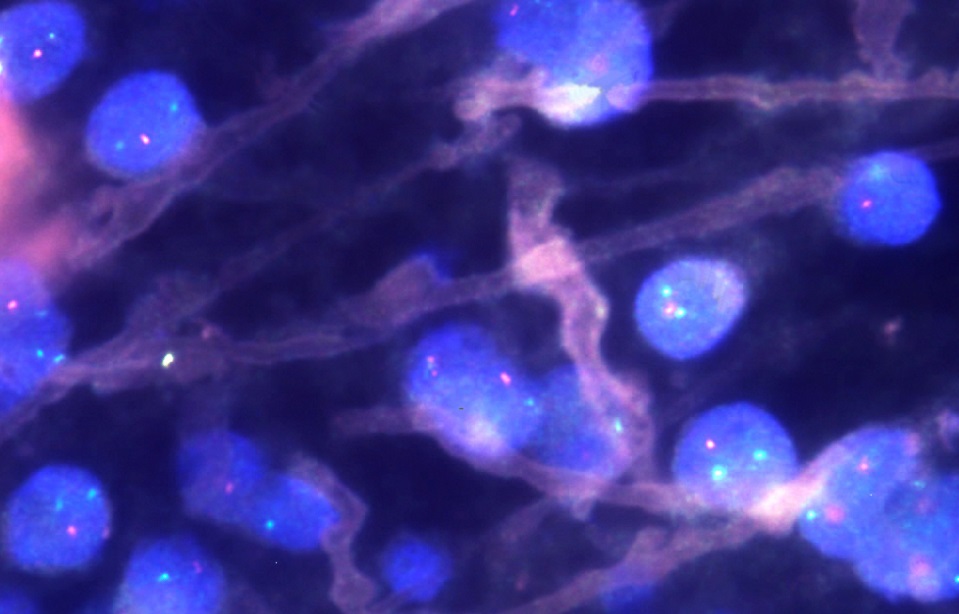
Brain UK study ref: 22/014,
Lay summary,
Project status: Active
Development of a cheap sensitive blood test for early detection of new and proven biomarkers of glioblastoma using fluorescent carbon dots and nanophotonics
Prof Kathreena Kurian, University of Bristol
Scientific need
There is a pressing need for the discovery of new blood biomarkers for brain cancer and state-of-the-art technology that allows for its sensitive detection. This requires close integration across clinical researchers (Kurian) and engineers (led by Hauert). With this project we expect to discover novel biomarkers, in addition to known markers such as Glial fibrillary acidic protein (GFAP), which will be used as a baseline, develop a fluorescent nanoparticle that can label this marker in blood, work with startup FluoretiQ towards using cheap desktop nanophotonics for high-sensitivity detection of nanoparticles.
Clinical need
Brain tumours reduce the life expectancy for an average patient by 20 years. In the UK in 2013: 38 % of brain tumour patients visited their GP 5 times or more before diagnosis in part because symptoms such as headache are non-specific. We have shown that although headache is strongly associated with brain cancer, the chance of a patient with headache having brain cancer is very low, meaning that many worried well patients undergo negative MRI/CT scans to exclude diagnosis. Moreover, 62% of emergency presentations for cancer (2006-2008) were brain tumours, which may be large and inoperable. Early diagnosis is a top James Lind Alliance priority as defined by the Brain Tumour Neuro-oncology community.
Significance
A simple blood test performed by a GP in the clinic would aid decision-making and early diagnosis. This would revolutionise care by speeding up diagnosis, reducing costs and anxiety of unnecessary scans and reducing the number of patients presenting with inoperable large brain tumours. Moreover, this test could be used as an early monitor of brain tumour recurrence. This work would be followed by a multicentre prospective cohort biomarker study to determine efficacy of the test in a real-world setting. Furthermore, the technology integration will be instrumental in future biomarker applications. By changing the functionalisation of the carbon dots, different markers could be detected. This is enabled by the fact that FluoretiQ is currently working on business models to deploy their high sensitivity test kits in clinical practices at 10 GBP per test price point.
